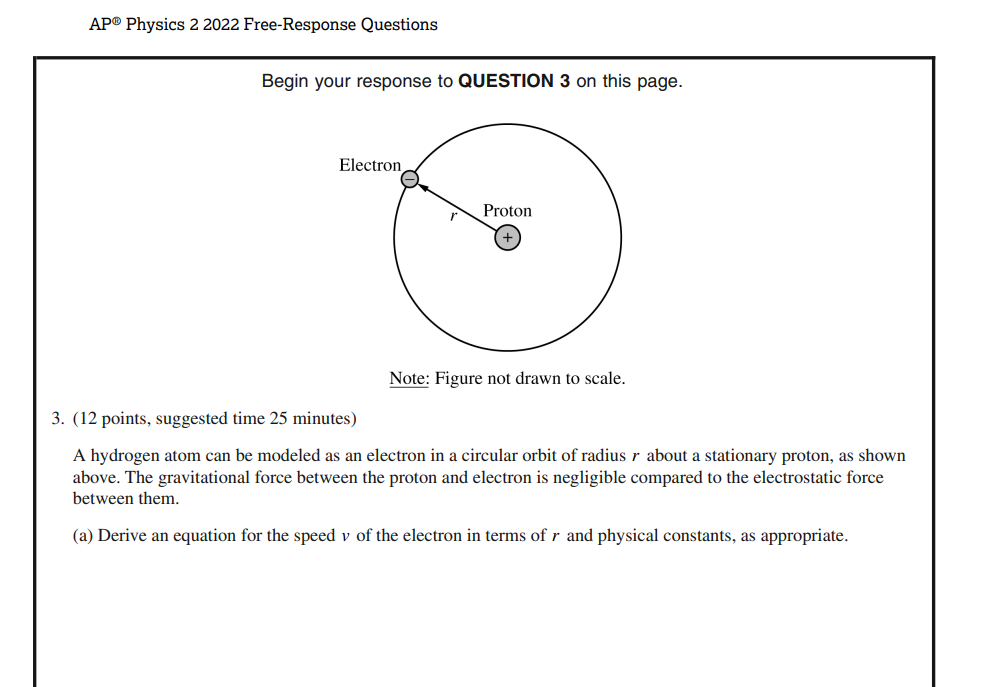This is a question from 2022 AP physics 2 FRQ, I am not here to ask how to solve the question, but I am curious about the assumption made by this question. It says that electrostatic force is the dominant force in this atom, however according to my knowledge, it cannot explain the fact that electron can only exist in certain energy level, so one should introduce quantum mechanics here.
My question is where does (what mass or what length or some other criteria) the classical theory (like Newtonian Mechanics, Electrostatic force etc.) fail to accurately describe phenomenon that are shown by things and we need to introduce quantum mechanics to fix it?

